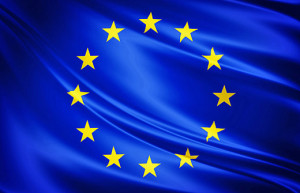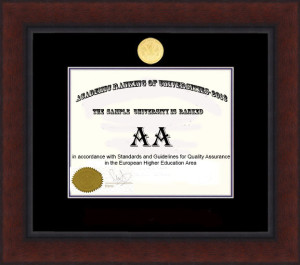 Our Mission: Through our efforts in economic development, the association is striving towards the creation of the environment to help people prosper and succeed through a proactive working partnership with all levels of government and community organizations to achieve a strong local economy and high quality of life.
Our Mission: Through our efforts in economic development, the association is striving towards the creation of the environment to help people prosper and succeed through a proactive working partnership with all levels of government and community organizations to achieve a strong local economy and high quality of life.
Ranking of Universities ARES-2018
ARES is a unique ranking of world universities as it automatically rates the educational, scientific and innovation activities of universities. The data are collected and processed using the advanced IT technologies such as WEB crawler, parsing, big data, etc.. It allows ARES to receive large volumes of data, and process them without any human intervention. This is the reason why leading ranking agencies take into consideration the ARES results. ARES has two processing centers: one in Europe (ARES processing, Milano, Italy) and one is in the US (Melo Processing Center, Alexandria, Virginia). The ranking strictly follows the EC standards applied to high educational institutions.European Scientific-Industrial Chamber may offer a variety of workday classes to its members that are relevant to the scientific and industrial fields.
Ranking of World Research Institutions WRIR-2018
Ranking of world research institutions WRIR is one of the most
 Top 100 world universities
Top 100 world universities
In 2018, ARES conducted a survey on leading world universities and identified 100 universities that showed the best results in education, research and socio/economic impact. The Harvard University is the world leader in ARES-2018. The University of Oxford came second as the Harvard University demonstrates stronger innovative infrastructure. The Imperial College London shows very good potential for breakthrough research and fundamental teaching. The Swiss Federal Institute of Technology Zurich takes place 18 in the ARES ranking. John Hopkins follows the Swiss Institute of Technology. The University of Munich showed excellent results as a multidisciplinary educational and research university. The Karolinska Institute is a medical university. It is one of the leaders in Europe in biomedical education and science. It occupies 47th place in the ranking. It should be more active in the dissemination of its scientific results. Only one Russian University entered the ranking- it is Moscow state university. This is due to the fact that a number of Russian universities do not carry first-class research due to the limited funding available. 2 Chinese universities appeared in ARES. They show excellent results at the world level. Unfortunately, a number of Chinese universities do not show a solid innovative infrastructure needed for the development of breakthrough technologies.
 Ranking of High Educational Institutions- ARES
Ranking of High Educational Institutions- ARES
The University Ranking conducted by the European Scientific Industrial Chamber has been done to evaluate the university performance over its teaching and research applying Standards and Guidelines for Quality Assurance in the European Higher Education Area (ESG) aiming at the common understanding of quality assurance across borders and among all stakeholders. These standards play an important role in the development of national and institutional quality assurance systems across the European Higher Education Area (EHEA), cross‐border cooperation and provision of quality assurance. (more…)
Membership in the European Scientific-Industrial Chamber (ESIC)
Members are nominated by the Chamber’s Counsel. The Members can be awarded by the gold diploma (Diploma di Merito) and the ID. The Eurochambers ID is not a national passport but it offers the following privileges: The most important advantage of the ID is that it is proof that the holder enjoys an honorary status. However, there are other numerous advantages and privileges of having the ID. These privileges vary from one state to the other.
Some of the common advantages and privileges’ of having the ID include:
- Being protected by the European organization, the ID holder may get free adequate legal assistance
- When traveling, the ID holder may use the VIP channels of airports
- The ID holder not only raises the image of the holder but also boosts the holder’s social status and prestige.
- The ID holder enjoys travel not only quickly but also cheaply as no additional taxes are imposed.
- The ID holder enjoys confident movement and activity internationally. Once one acquires an ID, traveling becomes much easier. So many questions and requirements at the airport are greatly reduced.
- Similarly, any activity that the ID holder may get involved in, either in his native country or in the host country is made easier.
- The ID holder may use the European Innovation portal for free.
.
The Encyclopedia (Registrar) represents a list of distinguished medical professionals. The key selection criteria for being listed in the European Registrar include professional excellence, exceptional efficiency, and patient-centered high-quality medical care.
The registrar enables the patient to find the most qualified physicians from different countries and specialties.
Apply for European funding under H2020
Funding and prizes
- Funding opportunities (Horizon 2023)
- Apply for funding
- Horizon contest and prizes
- EU contest for young scientists
- Evaluation and monitoring
- Joint research initiatives
- Women Innovators prize
- iCapital (The European Capital of Innovation Award)
- Seal of Excellence
- EU research fellowship programme – Marie Skłodowska-Curie Actions
- European Research Council (ERC)
Projects
- Find project partners
- Managing a project
- Success stories
- Find projects and results
Law and regulations
- Horizon 2020 legal and other reference documents
- Horizon 2020 policy support facility
- Intellectual property
- EU law
Research by theme
- Agriculture and forestry
- Bioeconomy
- Biotechnology
- Commission in-house research science areas
- Energy
- Environment
- Fisheries and aquaculture
- Food
- Health
- Information and communication technologies
- International Cooperation
- Key enabling technologies
- Research Infrastructures
- Science with and for society
- Security
- Small businesses (SMEs)
- Social sciences and humanities
- Space
- Synergies with structural funds
- Transport
Strategy on research and innovation
- The vision for research and innovation
- Scientific advice mechanism
- European Innovation Council
- Innovation Union
- European research area
- European Group on Ethics
- Horizon 2020 Policy Support Facility
- Evaluation & monitoring
- Foresight
- Contribute and participate (consultations)
Statistics
- Facts and figures on EU research funding
- Compare research and innovation across countries and regions
- Indicators on research and innovation performance in the EU
